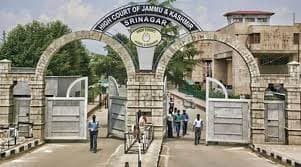
Husband Cannot Evade Maintenance by Simply Pronouncing Talaq Thrice: J&K HC
Jammu and Kashmir High Court upholds marriage obligations despite pronouncement of Talaq
Merely pronouncing "Talaak" or "Talaq" (a form of divorce) three times is insufficient to terminate a Muslim marriage or to avoid responsibilities such as the duty to maintain one's wife, the Jammu and Kashmir High Court recently ruled.
Justice Vinod Chatterji Koul noted that for a Talaq pronouncement to be valid, several accompanying actions must be undertaken, including pronouncing Talaq at specific intervals, having witnesses present, and making efforts towards reconciliation.
"It is not sufficient for divorce (Talaak) to be validly pronounced in the presence of two witnesses. These witnesses must possess justice, as their role is to ensure that prompted by their sense of justice, they may request and persuade the spouses on the verge of separation to calm down, resolve their disputes and lead a peaceful marital life," the Court stated.
In this context, reference was made to the High Court's 2012 ruling in Mohammad Naseem Bhat vs Bilquees Akhter and another.
Justice Koul added that a husband seeking to evade maintenance obligations by claiming divorce must not only prove that he pronounced Talaq or executed a divorce deed but also establish the following elements:
* Efforts were made by representatives of both spouses to resolve the marital dispute, which proved unsuccessful.
* There was a valid reason and genuine case for divorce.
* Talaq was pronounced in the presence of two witnesses possessing justice.
* Talaq was pronounced during a period of "tuhr" (between two menstrual cycles) without engaging in sexual intercourse with the divorcée during this time.
"Only after the husband pleads and proves all of the above elements can Talaq operate and dissolve the marriage between the parties, allowing the husband to avoid obligations under the marriage contract, including maintaining his wife.
In all such cases, the Court will scrutinise the husband's case closely and demand strict proof," the Court stated in its order dated July 4.
The High Court heard a case where the estranged wife initially obtained an ex-parte maintenance order in 2009, which the husband later contested. The dispute eventually reached the High Court, which remitted the matter back to a trial court in 2013.
In February 2018, the trial court ruled in favour of the husband, determining that the parties were no longer married. However, an additional sessions court overturned this decision and ordered the man to pay monthly maintenance of ₹3,000 to his wife.
The husband (petitioner) challenged this decision before the High Court in 2018. During submissions before the High Court, the petitioner clarified that he did not pronounce instant triple talaq, which was declared unconstitutional by the Supreme Court in the Shayara Bano case.
He also submitted a Talaknama (divorce deed) to his wife. However, the Court found these arguments unconvincing.
"The petitioner has submitted a copy of the Talaknama... the penultimate paragraph thereof reveals that the petitioner has made three pronouncements of Talak to put an end to the marriage and declare that he has divorced her.
According to the petitioner, he conveyed the Talaknama to the respondent (wife). It should be noted that such practices are deprecated in law," the Court remarked.
Consequently, the Court upheld the decision to award maintenance, as the facts and evidence on record did not demonstrate that proper reconciliation efforts had been made by the husband to resolve the marital discord.
Therefore, it affirmed the revision court's judgment and dismissed the appeal.
For any enquiries or information, contact ask@tlr.ae or call us on +971 52 644 3004. Follow The Law Reporters on WhatsApp Channels.